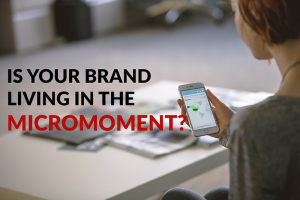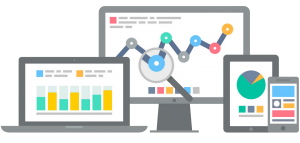More people use search on the internet, which means more exposure to ads. Search engine marketing also known as Pay per click (PPC) advertising is designed to drive traffic to your website. PPC is one of the most effective ways to grow a business in an increasingly competitive marketplace. With millions of businesses out there vying for a slice of the pie, it goes to show the importance of advertising online.
When people key in these specific keywords into the search engines, your advertisements appears in the search results. Advertisers bid on keywords that netizens might enter when looking for certain products or services in Google or Yahoo, which provides the advertiser an opportunity for their ads to appear alongside results for those search queries.
However, many still doubt the capability of PPC marketing. In this article, we will explore the myths and conceptions people usually have on PPC advertising campaigns.
1. People clicks on organic search. Nobody clicks on PPC ads.
Well hey, that’s a misconception. Google reportedly earned $14.11 billion in the second quarter of 2013 alone. Moreover, Google reports consistent increase in revenues. Money do not drop from the sky so where do Google get their money from? More than 97% of Google’s annual revenue come from paid advertising alone. Let’s think through this carefully, if nobody really clicks on ads, then why are thousands or maybe even millions of businesses spend billions of dollars in Google AdWords? This goes to show that businesses are getting their Return of Investment with paid advertising which explains why they are investing more and more as time passes.
Netizens usually click on organic ads when they are researching about a specific product. However, when searching for a product with the intention of buying, there is a higher tendency for people to click on text ads, knowing very well that they are ads. The reason? They believe that the ads would give them what they need. Organic searches usually direct them to information regarding the item rather than a place to purchase the item (which is what they need).
2. PPC is very expensive
It is expensive if you do not handle it correctly. A poorly managed campaign can cost more than it brings in, but a well-managed campaign can keep your business in business. Many advertisers make consistent mistakes which incur extra costs. For example, the #1 spot is so attractive that many companies are vying for it. It is easy to win the #1 spot, just give me $10000 and I’ll dump it and bid for the keyword and I’ll win. However, will it really generate high ROI? I doubt so. Instead, your budget will run out quickly (unless you have plenty of cash to spend). Point 3 will illustrate more on my point and explain more on maximizing your budget for maximized results.
3. The higher you bid, the better you rank.
PPC is not all about bidding. Believe it or not, one of the most important concepts that you must understand when it comes to Google is that their standards for the quality of content are very high. The way Google keep check and determine where advertisers rank on the Search Engine Result Page and how much they pay is through this metric: Quality Score. Quality Score works to prevent businesses with lousy, irrelevant ads to bid their way to the top. Hence, Quality Score serves as a check against rule by budget alone, by requiring advertisers to prove their relevance.
Strong Quality Scores reduces both the cost per click and cost per conversion. A high Quality Score is Google’s way of acknowledging that your PPC ad meets your potential customer needs. Hence, by identifying inexpensive, long-tail keywords, you are able to run a longer campaign and achieve maximized results.
4. You don’t need to use PPC if you are already doing well in SEO.
SEO and SEM are not opposing forces. You do not need to choose one over the other. Instead, they complement each other to help boost your marketing strategy and increase brand exposure. Don’t deny it, we trust brands we are familiar with. Hence, seeing a brand appear both on organic and paid results on a Search Engine Result Page (SERP) will create more brand awareness and boost your brand’s credibility. It’s normal for anyone to choose a brand they are familiar with than one that is completely new to them. A study conducted by Nielsen Research showed that a brand that appeared in organic search received 60% of the clicks whereas a brand that appeared in organic and paid search results received 92% of the total clicks. Likewise, when paid listings are shown alongside organic, the click through rate (CTR) of paid ads increases.
5. The more the merrier. The more keywords you dump into your PPC campaign, the more traffic you get.
Being “Kiasu” isn’t wise here as this isn’t the case for PPC. To have a successful PPC campaign, it is crucial to value quality over quantity, less is more. Choosing the right keywords is the key to a successful PPC campaign. What we should apply is the Singapore’s “Kiam Siap” spirit where we find high quality, low-cost PPC keywords to generate high Return of Investments (ROI) in the marketing campaign.
Having too many keywords in an ad group makes search-to-ad message match difficult and almost impossible. Message match refers to the matching of the search the term with an ad. Accomplishing it means that Google bolds your ad copy to stand out and your ad becomes instantly more relevant. Many keywords per ad group prevents a 100% message match between the keyword you’re bidding on and the ad that is being triggered to display on the SERP which affects your AdWords performance as low relevancy = lower click through rate = lower Quality Score = higher cost per click = higher cost per conversion.
Moreover, with a fixed budget, more keywords will result in lesser clicks. In long run, your daily budget simply can’t support the demand from your keywords list and this is a problem.


